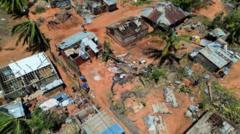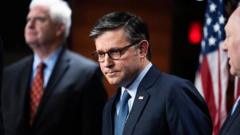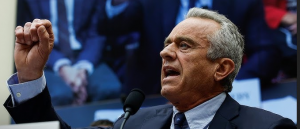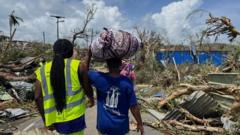**As the COP29 summit in Azerbaijan approaches its conclusion, significant disagreements remain over financing plans intended to support developing nations in combating climate change.**
**Climate Talks in Baku Face Urgent Deadlock as Time Runs Out**

**Climate Talks in Baku Face Urgent Deadlock as Time Runs Out**
**Senior negotiators convene to resolve funding disputes for vulnerable countries impacted by climate change.**
More than halfway into the ongoing United Nations climate discussions held in Baku, Azerbaijan, negotiators from nearly 200 nations are grappling with escalating tensions over essential funding strategies aimed at assisting lower-income countries heavily affected by climate change. As the urgency increases, key disputes persist regarding the amount of funding to be allocated, the criteria for financial efforts to be recognized under the summit’s objectives, and the mechanisms through which recipient countries can access these funds.
Despite historical patterns of negotiations extending beyond their scheduled timelines, the stakes are heightened this year. With only a few days remaining, there is a pervasive concern among participants that this summit may end without an agreement, marking the first such failure since the landmark Copenhagen talks in 2009. "There is a high risk this could collapse," voiced a senior negotiator from a prominent European nation, speaking under the condition of anonymity due to the sensitivity of the discussions.
Simon Stiell, the UN climate chief, issued an urgent appeal on Monday for nations to prioritize collaboration over controversy. He warned against entrenched positions that impede progress, stating, "This is a recipe for going literally nowhere." Stiell's call to action emphasizes the need for cooperative solutions as the clock ticks down on negotiations aimed at securing financial support for the world’s most vulnerable communities facing the brunt of climate change's impacts.
Despite historical patterns of negotiations extending beyond their scheduled timelines, the stakes are heightened this year. With only a few days remaining, there is a pervasive concern among participants that this summit may end without an agreement, marking the first such failure since the landmark Copenhagen talks in 2009. "There is a high risk this could collapse," voiced a senior negotiator from a prominent European nation, speaking under the condition of anonymity due to the sensitivity of the discussions.
Simon Stiell, the UN climate chief, issued an urgent appeal on Monday for nations to prioritize collaboration over controversy. He warned against entrenched positions that impede progress, stating, "This is a recipe for going literally nowhere." Stiell's call to action emphasizes the need for cooperative solutions as the clock ticks down on negotiations aimed at securing financial support for the world’s most vulnerable communities facing the brunt of climate change's impacts.






















